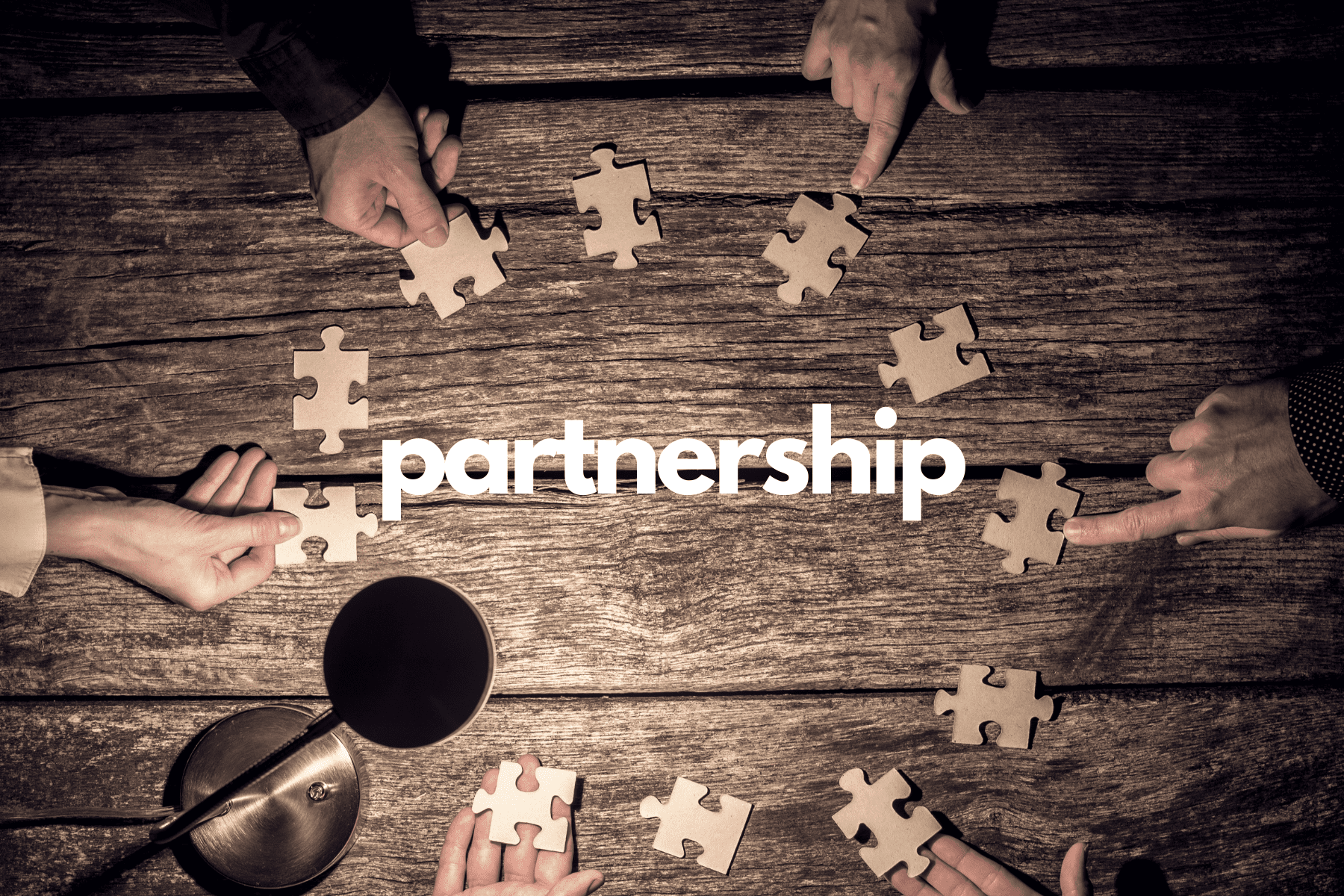In the ever-changing landscape of philanthropy, nonprofits are continually seeking innovative ways to maximize impact. One of the most effective strategies is forming strategic partnerships. There are three types of partnerships that can significantly benefit nonprofits: corporate sponsorships and partnerships, joint campaigns with other nonprofits, and collaborations with companies that specialize in nonprofit support.
Why These Partnerships Are Key for Nonprofit Success
Here’s why each of these nonprofit partnership types can be especially beneficial for your organization.
Corporate Sponsorships and Partnerships: Win-Win Propositions
A corporate sponsorship or partnership offers a mutually beneficial relationship that goes beyond mere financial transactions.
For corporations, aligning with a nonprofit enhances their brand image and fulfills their Corporate Social Responsibility (CSR) goals, an increasingly important variable in achieving business success.
Harvard Business School reports that between 2011 and 2019, the number of companies on the S&P index publishing CSR reports rose from 20% to a staggering 90%. The reasons for this are manifold, and affect both a company’s internal stability and external funding: Employees are more content and loyal in companies that take CSR seriously, and investors increasingly value CSR for both their own reputations and the promise of sustainability and low turnover it means for the businesses they invest in.
For nonprofits, there are myriad benefits, from various forms of support to increased visibility and beyond. The collaboration often results in a “halo effect,” where the goodwill generated by the nonprofit positively impacts the business’s reputation. This creates a win-win situation that can lead to long-term, sustainable relationships.
Joint Campaigns: The Power of Collaboration
In an era where collective impact is highly valued, joint campaigns with other nonprofits offer a powerful way to maximize resources and reach. By pooling skills, networks, and financial resources, nonprofits can achieve goals that might be unattainable individually. These collaborations often lead to innovative solutions, as each organization brings its unique perspective and expertise to the table. Moreover, joint campaigns can attract more media attention than solo efforts, amplifying the impact even further.
Specialized Support: Leveraging Expertise
The complexities of running a nonprofit are many, from legal issues to fundraising challenges. Companies that specialize in nonprofit support offer tailored solutions that can save organizations time and money. Whether it’s crafting a compelling grant application, strategizing a fundraising campaign, or navigating tax laws, these experts can provide invaluable insights. This specialized support allows nonprofits to focus on what they do best: serving their communities and advancing their missions.
The Synergistic Effect
When used in combination, these three strategies can create a synergistic effect that propels a nonprofit to new heights. Corporate sponsorships and partnerships provide the financial backbone, joint campaigns amplify reach and impact, and specialized support ensures that operations run smoothly. Together, they form a robust framework that empowers nonprofits to navigate challenges and seize opportunities in today’s complex philanthropic landscape.
Here’s how.
Corporate Sponsorships and Partnerships
While these two terms are often used interchangeably, corporate sponsorships and partnerships are very different. Corporate sponsorships are generally temporary and revolve around specific events, projects, or campaigns. They are primarily financial or in-kind contributions in exchange for promotional benefits.
Corporate partnerships involve a more collaborative and long-term relationship, often centering on mutual interests such as strategic goals, market expansion, or technology sharing.
Sponsorships
Corporate sponsorships are financial or in-kind contributions from businesses to nonprofits. These sponsorships can be event-specific or ongoing, and they often come with mutual benefits for both parties. For example, a corporation might sponsor a nonprofit’s annual gala, providing funds in exchange for brand visibility at the event.
Corporate sponsorships can be categorized into various types based on the nature of the support provided:
- Financial sponsorships. Financial sponsorships involve direct monetary contributions from businesses in support of specific nonprofit projects, fundraisers, or general operations.
- In-kind sponsorships. In-kind sponsorships are donations of products or services, such as free software licenses or event spaces.
- Cause-related marketing. With cause-related marketing, a portion of the sales from a specific corporate product or service is donated to the nonprofit.
- Event sponsorships. Event sponsorships are those in which for-profit companies sponsor specific events, like galas or charity runs, often in exchange for brand visibility.
What’s Great About Sponsorships
Corporate sponsorships can offer essential benefits for nonprofits:
- Financial support. Corporate sponsorships are a significant source of revenue for nonprofits, helping to offset operating costs and other expenses.
- Brand awareness. Sponsorships can increase a nonprofit’s visibility, especially if the corporate sponsor promotes the partnership in its marketing channels.
- In-kind donations. Besides financial contributions, corporations may offer in-kind gifts, such as products or pro-bono services that might be prohibitively expensive or difficult for nonprofits to obtain on their own.
- Tax benefits. For corporations, sponsorships can offer tax incentives, adding another layer of appeal.
Partnerships
Corporate partnerships are long-term, strategic alliances between nonprofits and corporations. The main types of corporate partnerships include:
- Strategic philanthropy. Corporations align their business goals with a nonprofit’s mission.
- Profit-sharing initiatives. A portion of the corporation’s profits from specific products or services goes to the nonprofit on a long-term basis rather than for a limited period.
- Employee engagement. Corporations encourage their employees to volunteer or donate to the nonprofit.
- Joint ventures. Both entities collaborate on a project that serves both their interests, such as research or product development.
What’s Great About Partnerships
Corporate partnerships offer nonprofits a range of benefits that go beyond financial support. These alliances can provide access to a broader audience, specialized skills, and resources that the nonprofit might not have on its own.
Additionally, the long-term nature of partnerships allows for sustained impact, enabling nonprofits to predictably plan and execute more ambitious projects. The mutual benefits also mean that corporations are often more invested in the nonprofit’s success, creating a more robust and effective collaboration. You can find tips for building strategic corporate partnerships here.
Joint Campaigns With Other Nonprofits
Joint campaigns (sometimes called co-marketing) involve collaboration between two or more nonprofits to achieve a common goal. These partnerships can take various forms, from co-hosting events to joint fundraising initiatives. Some ideas for co-marketing include:
- Hosting a webinar together
- Trading and repurposing each other’s content (blogs, social media posts, landing page copy, etc.)
- Sharing conference and trade show booths
- Organizing joint events and fundraisers
- Sharing employee and team skill sets
The Benefits of Co-Marketing With Another Nonprofit
Partnering with another nonprofit in a joint campaign allows your organizations to:
- Share resources. Nonprofits can pool resources, such as volunteers and marketing channels, to maximize impact.
- Increase visibility. Joint campaigns can attract media attention, providing free publicity for all involved organizations.
- Combine strengths. Each nonprofit brings its unique strengths to the table, enhancing the overall effectiveness of the campaign.
- Enjoy shared concerns and approaches. When you’re working with another nonprofit, you won’t have to explain nonprofit-specific perspectives or approaches, since the other organization “knows the drill” in many ways that a for-profit corporation might not.
Companies Specializing in Nonprofit Support
Particularly if you’re looking for long-term “brass tacks” support for a key aspect of running your organization, it’s well worth considering the services of a for-profit business that specializes in serving nonprofits’ needs, such as a nonprofit consulting firm.
Services That Specialized Businesses Can Offer Nonprofits
Nonprofit-adjacent companies work to help nonprofits achieve their missions in a number of ways. These firms offer a range of services, from fundraising strategies to marketing support. Many specialize in a particular type of service or set of services. The most commonly sought and available categories include:
- Fundraising approaches
- Technology-related support (such as building or optimizing websites)
- Marketing strategies (for email, blogs, social media, etc.)
- Administrative support (for functions like human resources and accounting)
- Grant writing
- Legal counsel
- Special events management
- Google Ad Grant procurement and maintenance
The Advantages of Working With a Nonprofit Consultant
For nonprofits as for other businesses, there are almost countless benefits to delegating highly technical or complex work to consultants who specialize in it. In general, the main advantage is that it allows you and your internal staff to focus on what you do best in the knowledge that industry experts are taking top-notch care of the things you don’t have time for or specialization in. Other key gains include:
- Efficiency. With expert help, nonprofits can achieve their goals more quickly and effectively.
- Expanded abilities. Consultants can instantly expand your organization’s resources, capabilities, and ultimately, impact.
- Cost efficiency. Hiring a third-party specialist or consultant saves you the time, cost, and effort it would take to hire the multiple internal employees you would need to accomplish the same results.
- Perspective. Sometimes, internal priorities and politics can get in the way of doing the best thing for your organization in the best way at the best time. A third-party organization can combine your mission and interests with objective best industry practices that will perform better and lead you to greater success.
- Control. Because nonprofit consultants have a vested interest in your success, they will welcome any input from your organization that helps to tailor their services to your needs. This means that, although you’re outsourcing some aspects of your operations, you remain firmly in the driver’s seat with all your contracted services.
Strategic partnerships offer a multifaceted approach to success for nonprofits. Whether it’s through corporate sponsorships, joint campaigns, or specialized support, these collaborations provide invaluable benefits that can propel your organization to new heights.
For more tips and guides on how to tackle key aspects of nonprofit operations, see our library of helpful articles. Here at Nonprofit Megaphone, our mission is to amplify nonprofit voices. If you think Nonprofit Megaphone’s industry-leading management of the Google Ad Grant could be right for your organization, click here for a free consultation!





